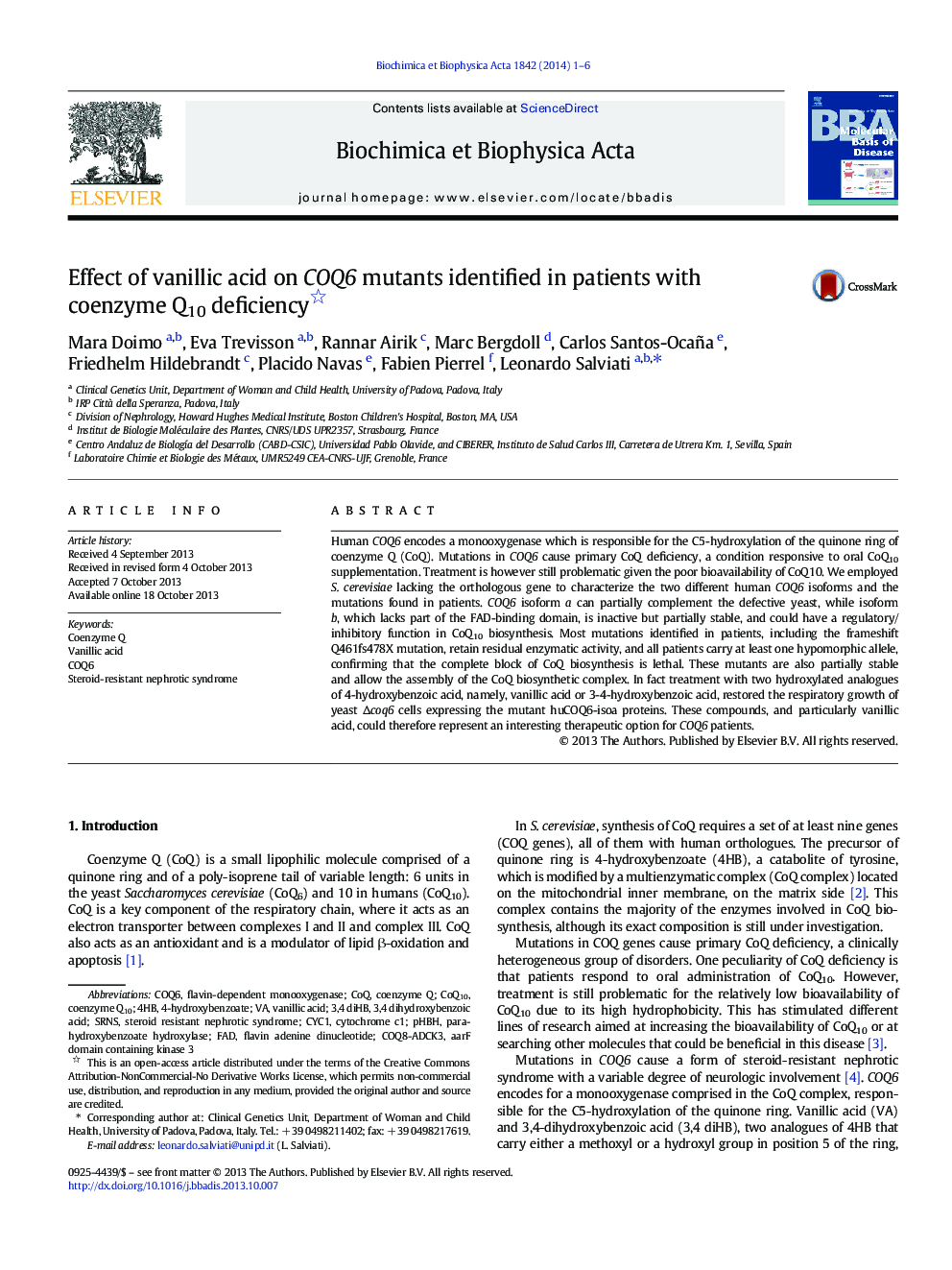| Article ID | Journal | Published Year | Pages | File Type |
|---|---|---|---|---|
| 8260486 | Biochimica et Biophysica Acta (BBA) - Molecular Basis of Disease | 2014 | 6 Pages |
Abstract
Human COQ6 encodes a monooxygenase which is responsible for the C5-hydroxylation of the quinone ring of coenzyme Q (CoQ). Mutations in COQ6 cause primary CoQ deficiency, a condition responsive to oral CoQ10 supplementation. Treatment is however still problematic given the poor bioavailability of CoQ10. We employed S. cerevisiae lacking the orthologous gene to characterize the two different human COQ6 isoforms and the mutations found in patients. COQ6 isoform a can partially complement the defective yeast, while isoform b, which lacks part of the FAD-binding domain, is inactive but partially stable, and could have a regulatory/inhibitory function in CoQ10 biosynthesis. Most mutations identified in patients, including the frameshift Q461fs478X mutation, retain residual enzymatic activity, and all patients carry at least one hypomorphic allele, confirming that the complete block of CoQ biosynthesis is lethal. These mutants are also partially stable and allow the assembly of the CoQ biosynthetic complex. In fact treatment with two hydroxylated analogues of 4-hydroxybenzoic acid, namely, vanillic acid or 3-4-hydroxybenzoic acid, restored the respiratory growth of yeast Îcoq6 cells expressing the mutant huCOQ6-isoa proteins. These compounds, and particularly vanillic acid, could therefore represent an interesting therapeutic option for COQ6 patients.
Keywords
Related Topics
Life Sciences
Biochemistry, Genetics and Molecular Biology
Ageing
Authors
Mara Doimo, Eva Trevisson, Rannar Airik, Marc Bergdoll, Carlos Santos-Ocaña, Friedhelm Hildebrandt, Placido Navas, Fabien Pierrel, Leonardo Salviati,
